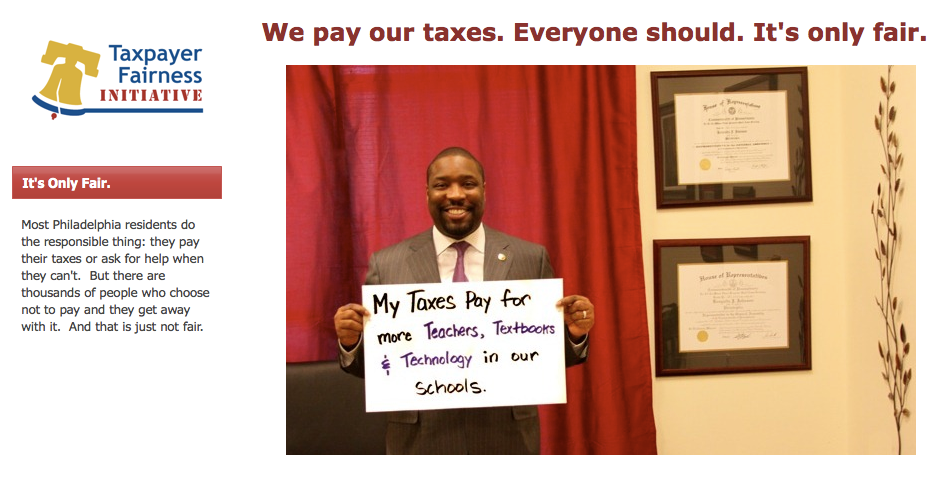More delinquency discussion at Taxpayer Fairness hearings

The six City Council freshmen held the second consecutive Committee of the Whole hearing on property tax delinquency Wednesday afternoon, and while the range of testimony was wide, new policy suggestions were few. The strongest voices of advocacy spoke in favor of two bills currently in Council: a land bank bill sponsored by Councilwoman María Quiñones-Sánchez and a tax foreclosure overhaul sponsored by Councilman Bill Green. Each of those bills has been or will be subject to a hearing of its own.
Witnesses included City Controller Alan Butkovitz, Philadelphia Gas Works CEO Craig White, PACDC Director Rick Sauer, Monty Wilson of Community Legal Services, Lynette Correa of the Women’s Community Revitalization Project, anti-blight activist Christopher Sawyer, and several more. The Council freshmen have posted all written testimony submitted from the two days of hearings on their Taxpayer Fairness Initiative website here.
If there were a consensus at the hearing, it was that beyond any policy proposal, the Revenue Department just needs to try harder. Controller Alan Butkovitz and Councilman Jim Kenney talked at the beginning of the hearing about an “appalling lack of cooperation” within Revenue and between different agencies. At Tuesday’s hearing, Revenue Commissioner Keith Richardson defended the Department’s performance. Councilman Kenney on Wednesday said he was mystified by the Administration’s defensive position and what he sees as a lack of will to improve its collection rate.
Council members also praised Craig White for improving PGW’s collection rate by about ten percent over the last dozen years. White said that each percentage point increase represented an additional $9 million or so in revenue, so the utility was able to recoup its investment in a new billing system.
Darrell Zaslow, legal counsel for the Homeowners Association of Philadelphia, testified in favor of “sequestration” as a tool for fighting delinquency. Zaslow called foreclosure the “ultimate weapon” for fighting delinquency, but said that its potential consequences—homelessness, city ownership of unwanted property—may mean it’s not the best weapon. Zaslow described sequestration as a process by which a municipality can “retain the rent, or the rental value, of the delinquent property, until all liens and claims are paid.” He said that the collection of rents to satisfy tax debt is an easier way for the city to get what it’s owed without taking full ownership of a property. Read Zaslow’s detailed testimony here.
Other witnesses testified in support of the increased use of Act 135, the Abandoned and Blighted Property Conservatorship Act, wherein a court can appoint a conservator for distressed properties that can bring them into code compliance. That act seems to deal specifically with blighted properties, however, and not explicitly tax-delinquent ones.
PlanPhilly asked Councilman David Oh, who had introduced one of the resolutions calling for the delinquency hearings, whether they had surfaced the kinds of proposals he was hoping for.
“There’s no particular information that I’m looking for,” Oh said. “I’m very interested in the testimony and what everybody is saying. Sometimes you hear things that you already know, and sometimes you hear things that were said before. But sometimes you hear things that are different, and maybe there was testimony that was given and I wasn’t here. But I think it’s always interesting, sometimes something’s given and it doesn’t seem quite relevant, but sometimes circumstances change and it becomes relevant. So I’m interested in looking a little further into sequestration and Act 135. I certainly have heard some of the explanations of the Administration, some of the work they’re doing—of course you wonder why they didn’t do it earlier …”
Oh also noted that the more taxes the city is able to collect, the lower Council can set the millage rate. The freshmen Council members intend to post video of the testimonies on their website in the next few days.
Contact the reporter at jbrey@planphilly.com and follow him on Twitter @jaredbrey
WHYY is your source for fact-based, in-depth journalism and information. As a nonprofit organization, we rely on financial support from readers like you. Please give today.






